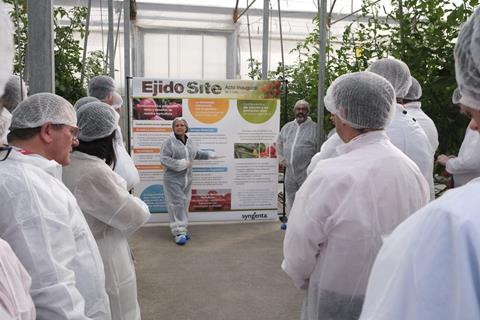Almeria-based global breeding innovation centre plays a “critical role” in bringing high-quality vegetable seeds to growers
Syngenta Vegetable Seeds has inaugurated what it has called a modernised and expanded R&D facility in Almería, Spain.

Located in El Ejido, the global breeding innovation centre played a ”critical role” in helping Syngenta bring quality vegetable seeds to growers in Spain and beyond, it said.
Key vegetable crops bred at the facility include tomatoes, peppers, cucumbers, squash, and melon.
“Every investment we make is focused on one key principle – how can we better serve growers,” said Matthew Johnston, global head of vegetable seeds and flowers at Syngenta.
“This expanded and modernised facility in El Ejido highlights the importance of Spain in the global agricultural landscape while underscoring our commitment to accelerating our innovation to help growers who are dealing with volatile climates and challenging environments to grow produce and feed the world.”
Syngenta’s El Ejido site was first established in 1983 and is now home to 145 employees working across R&D, production, commercial and corporate functions.
The group explained that the most recent investment of US$3m covered a series of enhancements to the site that centralises seed activities in Europe, allowing Syngenta to better respond to the needs of growers.
Investments at the site include upgraded greenhouses to enable year-round breeding activities, redesigned pathology and quality labs, a seed processing area, and deployment of digital tools.
In addition to El Ejido, Syngenta has also invested in expanding breeding operations across other areas of Spain.
This includes a new trialing location in La Puebla, Murcia, with a dedicated focus on leafy and brassica crops.
“Our investment in Spain is a great example of how our global R&D footprint is intentionally shaped around localised breeding programmes, giving us the ability to respond faster to the needs of growers in every region,” said Uri Krieger, global head of R&D for Syngenta Vegetable Seeds and Flowers.
“Our ability to innovate faster is made possible through enabling technologies in the field and in the lab,” he added. “Capturing data at every step of the R&D process allows us to be precise and effective in our decision processes.”



